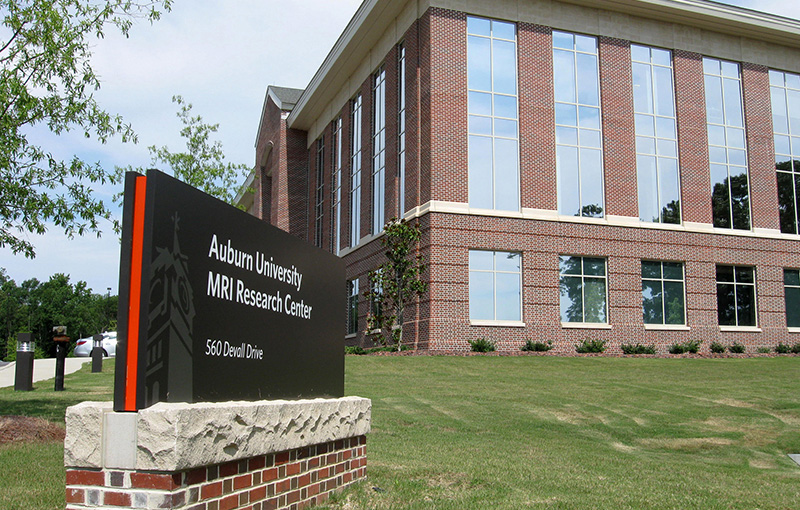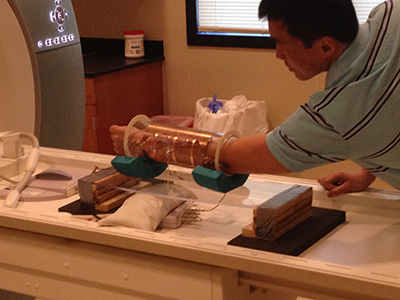Wang awarded NIH grant for neuropsychiatric disorder treatment using electromagnetic devices

 Shumin Wang, associate professor in Auburn University's Department of Electrical and Computer Engineering, has been awarded a $407,000 National Institutes of Health (NIH) grant. As the principal investigator, he is joined by neurologist Jerzy Szaflarski in the Department of Neurology at the University of Alabama at Birmingham. They are developing a new technique that will combine transcranial magnetic stimulation (TMS) and magnetic resonance imaging (MRI) to facilitate the treatment of neuropsychiatric and neurological disorders, such as depression, obsessive-compulsive disorder and epilepsy.
Shumin Wang, associate professor in Auburn University's Department of Electrical and Computer Engineering, has been awarded a $407,000 National Institutes of Health (NIH) grant. As the principal investigator, he is joined by neurologist Jerzy Szaflarski in the Department of Neurology at the University of Alabama at Birmingham. They are developing a new technique that will combine transcranial magnetic stimulation (TMS) and magnetic resonance imaging (MRI) to facilitate the treatment of neuropsychiatric and neurological disorders, such as depression, obsessive-compulsive disorder and epilepsy.
Approved by the Food and Drug Administration in 2008, TMS is a non-invasive procedure that uses an insulated electromagnetic coil placed against a patient's scalp to deliver magnetic pulses to stimulate nerve cells in specific regions of the brain. The localization of stimulation sites requires an MRI scan, which utilizes another strong magnetic field to create detailed structural images of the body. According to Wang, past studies have combined the unique uses of MRI with TMS by placing a conventional TMS coil inside a MRI receiver coil. However, since both MRI and TMS use strong magnetic fields, compatibility issues severely limit the functionality of TMS.
"For the first time, we propose a new technique that will fully integrate TMS with MRI and will allow us to more effectively direct TMS to specific regions of the brain by using MRI," stated Wang. "Our innovation is that we will use the same set of coils to generate an enhanced image of specific regions of the brain and to deliver individually tailored nerve stimulation pulses for that region. Our design will be seamlessly adaptable to existing clinical or research MRI machines and will eliminate the need for standalone and MRI-incompatible TMS instruments."
This study is expected to enable advanced neuroscience research and the development of effective therapies for patients who are physically sound but have neurological issues and their standard medications are no longer beneficial to them.





